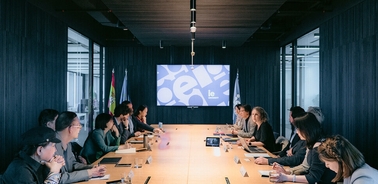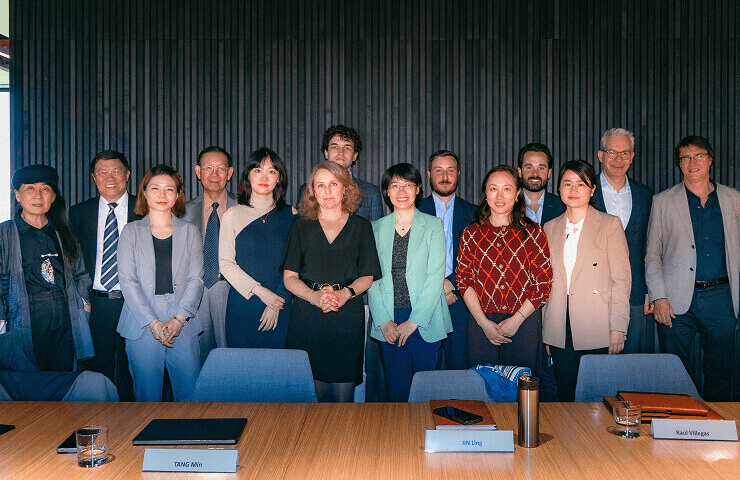The Global Policy Center Hosts EU-China Think Tank Network Meeting to Strengthen Strategic Dialogue

The meeting gathered distinguished participants including Ilke Toygür (Director, IE Global Policy Center, and Professor of Practice, IE University), Almut Möller (Director for European and Global Affairs and Head of the Europe in the World Programme, European Policy Centre), Alberto Ibañez (Regional Director for Asia Pacific, IE University), Félix Valdivieso (Chairman, IE China Observatory), Ivano di Carlo (Senior Policy Analyst, European Policy Centre), LONG Jing (Deputy Director, Center for European Studies, Shanghai Institutes for International Studies), JIN Ling (Senior Research Fellow and Director of the Department for European Studies, China Institute of International Studies), TANG Min (Senior Vice President, Center for China and Globalization), and XIE Peihong (Vice President, Center for China and Globalization), among others.
In an environment of heightened global tensions, the session offered a timely opportunity to reflect on the existing challenges between the EU and China and identify constructive approaches for moving forward.
Rebuilding Trust and Designing Forward-Looking Cooperation
Throughout the discussions, participants emphasized the urgent need to rebuild trust and strengthen mutual understanding between Europe and China. As preparations continue for the EU-China Summit in July 2025, there was broad agreement that both sides should resist the temptation to overstate their differences. Instead, the focus should be on identifying commonalities and areas of shared strategic interest.
One key proposal that emerged was the need for a targeted approach to deeper cooperation, emphasizing practical implementation through joint programs and projects. A promising example discussed was fostering China+EU+Africa trilateral cooperation, particularly in areas such as sustainable development, health, and digitalization.
Participants also stressed the importance of ensuring that the summit maintains a clear and specific agenda, centered around concrete issues like climate action, trade facilitation, emerging technologies, and infrastructure development.
Balancing Transatlantic Relations and Deepening EU-China Engagement
A major theme of the meeting was the complex interplay between transatlantic relations and the EU’s approach to China. As the United States increasingly frames China as a strategic enemy, participants discussed the need for the European Union to craft an independent China policy, one that balances its transatlantic ties with its own strategic engagement.
From the European Union's standpoint, this remains a complex undertaking, particularly in light of the EU's concerns regarding China's support for Russia's war efforts, industrial overcapacity affecting European markets, and persistent protectionist policies. Despite significant differences that must be addressed, the imperative for continued engagement is clear and pressing.
Furthermore, the last key topic discussed was the need to rethink educational exchanges and people-to-people connectivity. Participants highlighted the importance of maintaining a continuous exchange of ideas to ensure that mutual perceptions remain current. Furthermore, it was considered essential to involve younger generations more actively in EU-China engagement. Finally, participants proposed advancing a "global triangle dialogue" among the EU, China, and the Global South, fostering broader multilateral cooperation and developing shared solutions to common global challenges.
The meeting reaffirmed the critical role of think tanks and universities in fostering open, strategic conversations beyond official diplomatic channels. In an increasingly complex geopolitical environment, creating such spaces for dialogue will be essential for developing a stable, prosperous, and cooperative international order.
The Global Policy Center remains committed to facilitating these critical exchanges, building bridges of understanding, and helping shape the future of EU-China relations in a multipolar world.
